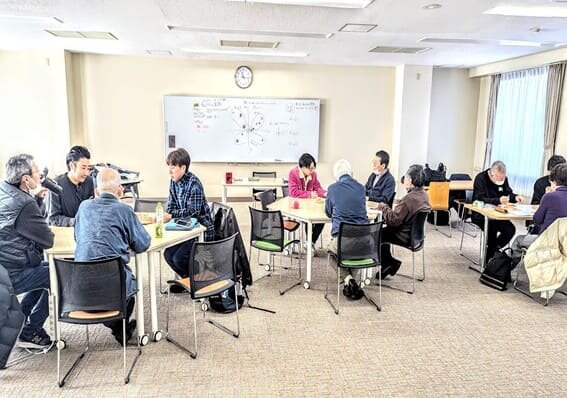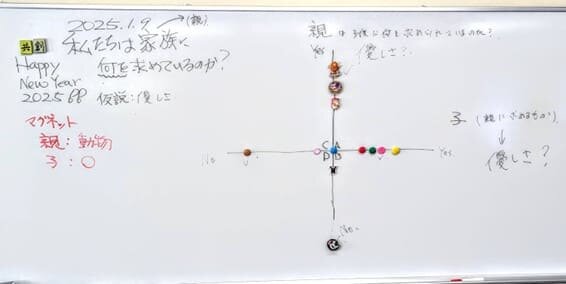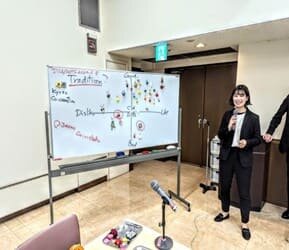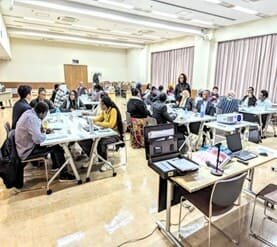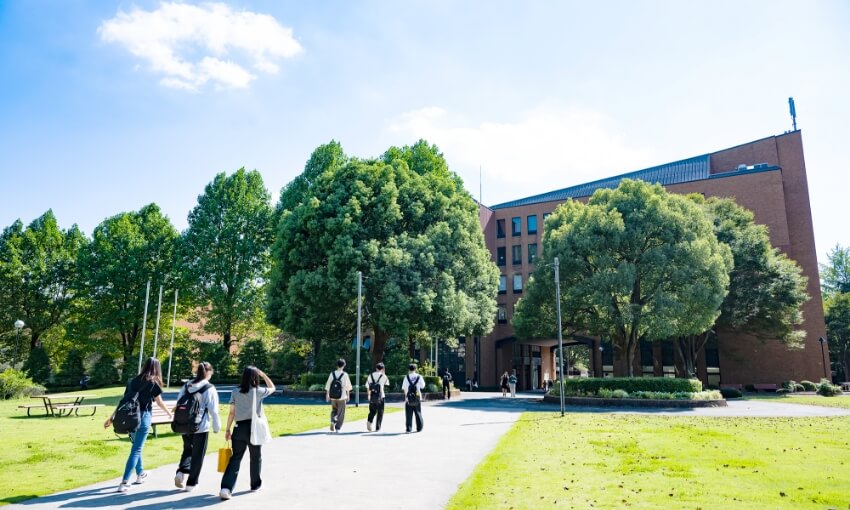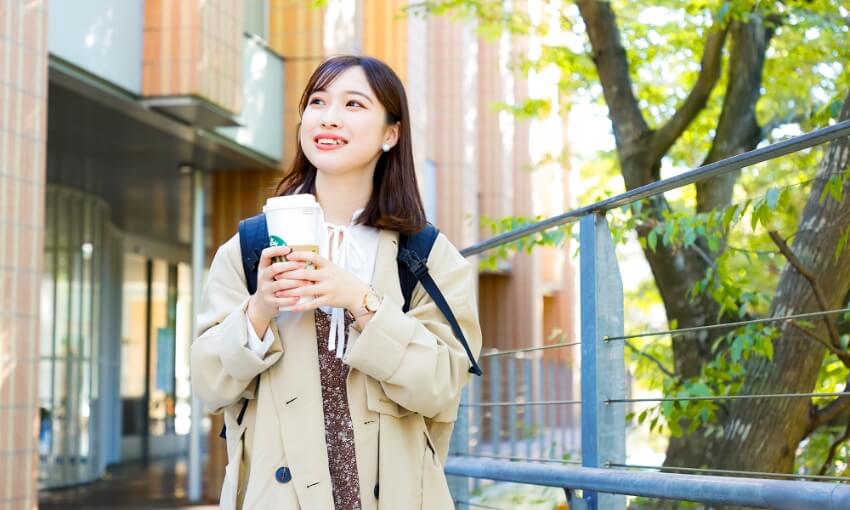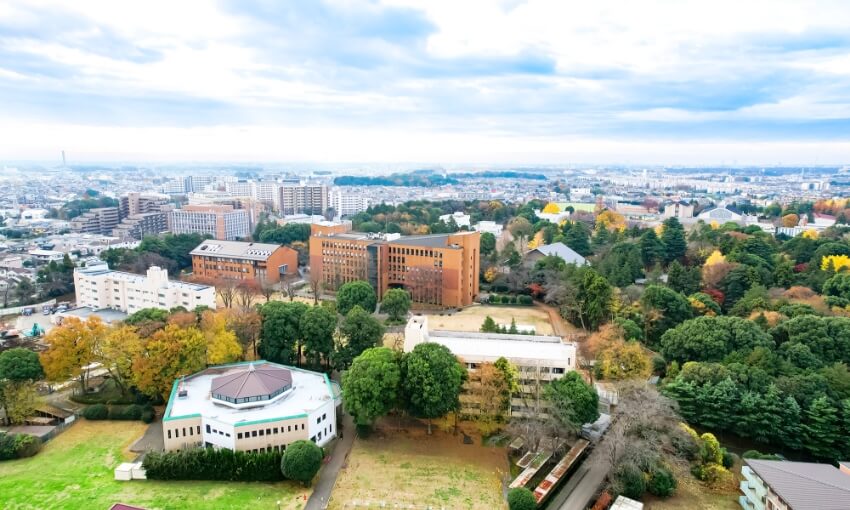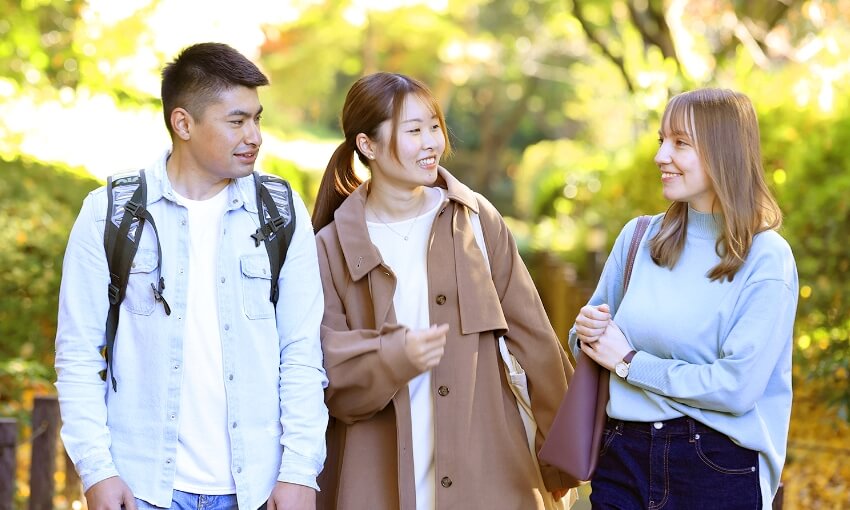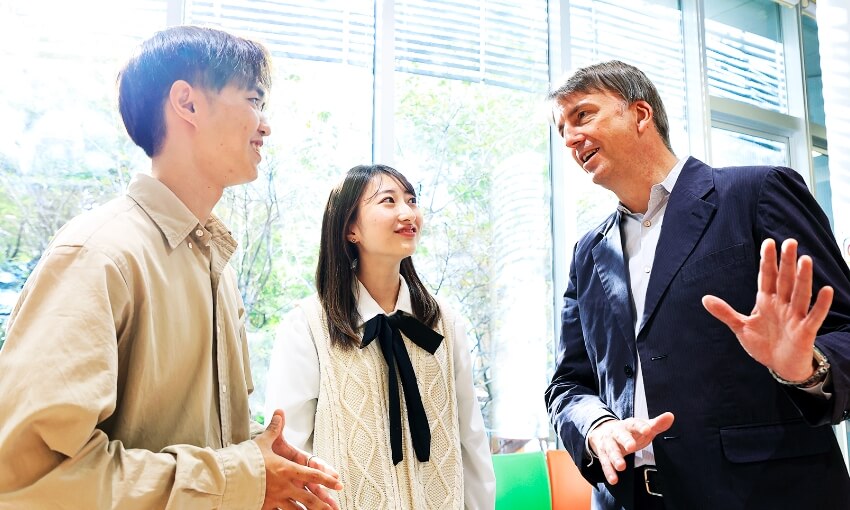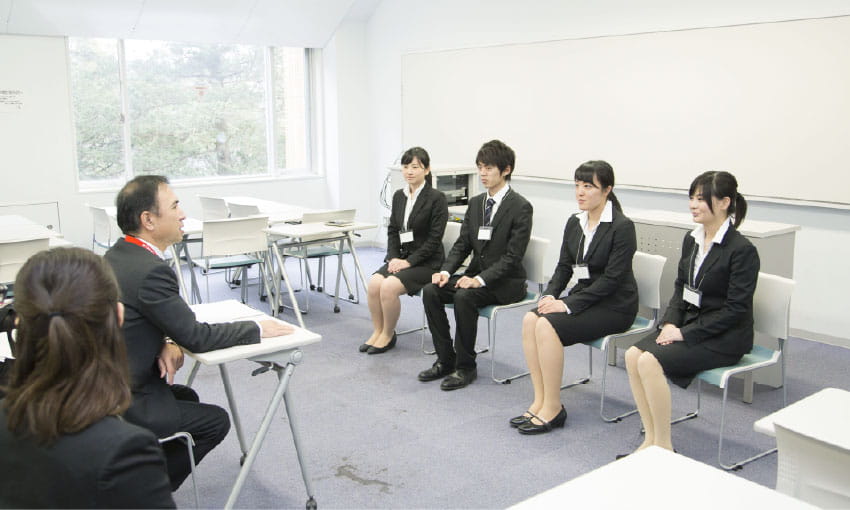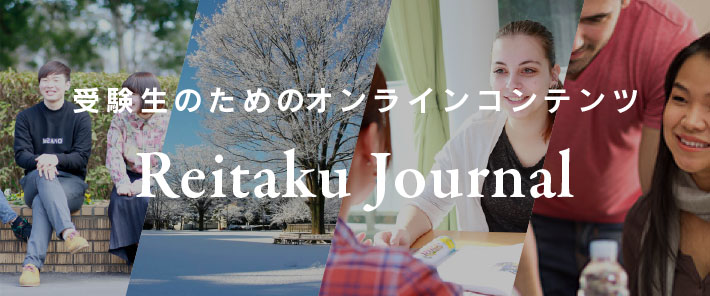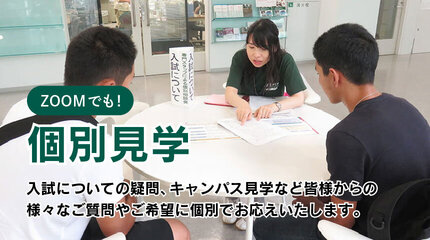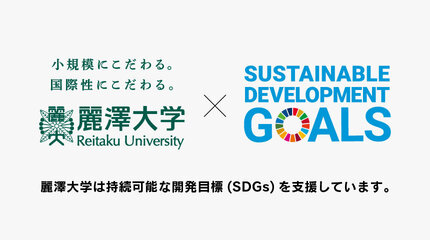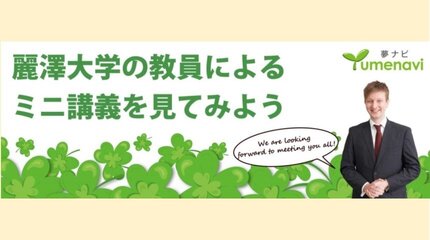共創空間研究センター インフォメーション
Center for Co-creative Studies, CCS Miki Yamashita・Hiroyuki Oba
The Center for Co-creative Studies (CCS) was launched at Reitaku University in April 2025. A key future challenge is to promote and advance the co-creative leadership model and co-creative activities using CSD method, both in Japan and internationally, with CCS at its core. The purpose and activities of CCS are as follows.
1. Purpose of Establishment:
In launching CCS, we have three aims as follows.
(1) To bring new awareness to each individual by practicing the "Co-creative Space Development (CSD)" method. To master this innovation technique in order to realize "Live together and grow together with mind of uniting intelligence and morality". And, co-create the future with the next generation and spread the CSD method from Reitaku to the entire world.
(2) To establish "Co-creative Studies (CS)" as a new academic discipline using CSD method. CS is the study of scientifically examining and exploring the human mindset (ways of thinking and feeling, beliefs and attitudes, values, standards of judgment, assumptions&prejudice, etc.) using CSD method. Specifically, themes of shared value, e.g., IKIGAI (purpose of life reimported to Japan), SDGs, wellbeing, peace, AI etc., are examined and explored in the co-creative space.
(3) Develop authentic Co-creative leaders who have mastered the CSD methodology.
The "Co-creation space" is a space to search for what is true by discovering questions and diverse answers to be shared on a certain theme (e.g., education, peace, AI, etc.). This activity is carried out by respecting the will of each individual and playing catch with words based on non-violence principle. So, the co-creation space is a place for not only self-expression at freewill, but also inspiration and innovation that bring "awareness" to blind spots that one cannot see, and widen and deepen perspectives. In this space, we discover the equation 1+1=2 is not the only answer but, other answers exist. For example, adding the flame of one candle to the flame of another candle results in the same flame, so 1+1 is not 2; 1 is also an answer. The object of "creating together" in this space is neither MONO:a thing (goods) nor KOTO:service, but rather the creation of a "Kata". "Kata" refers to a "way of thinking" or "way of feeling," which connects to quality of life, "ways of living," and the well-being that is the focus of much attention today. This CSD method enables the mastery of all ten core life skills advocated by the WHO (World Health Organization) as shown below:
The ten core life skills are: Problem-solving skill, Decision-making (judgment and execution) skill, Critical thinking skill, Creative thinking skill, Communication skill, Interpersonal skill, Self-awareness skill, Empathy skill, Stress coping skill, and Emotional coping skill.
2. Activities:
Specific activities will include research and practice in the following eight areas.
(1) Setting and implementing themes that connect the five faculties of Reitaku University (including the Faculty of Engineering and the Faculty of Business Administration, which were newly established in 2024). Promoting the sharing of the Reitaku philosophy of "Chitoku Ittai:Uniting intelligence and morality".
・Promote and strengthen the high school-university collaboration.
・Applying CSD method as a support tool for high school education, such as "Tankyu:Exploration based-learning"classes (Reitaku High School: from April 2025)
・Collaboration with other universities (Co-creation with Jishu-kikaku/students' initiative planning seminar: Kanda University of International Studies, etc.)
(2) Establishment and implementation of themes that connect the region (Kashiwa City, Nagareyama City, etc.). Tie-up with university regional cooperation.
Collaboration with The Center for Preventive Medical Sciences, Chiba University (Social Welfare), Kashiwa City Hall and the Council of Social Welfare.
(3) Establishment and implementation of themes that connect generations (young generation and senior generation). The Jishu-kikaku/students' initiative planning seminar (The intersection of intelligence and morality,IIM) has been launched in April, 2025. This seminar is held at the University library, 4th floor(The PIT). IIM is inviting not only university students in different faculties, but also members of Reitaku Open College in Kashiwa, ROCK) and students of Reitaku High School and neighboring high schools.
(4) Theme setting and practice connecting with overseas. After acquiring CSD method, undergraduates will participate in overseas internships organized by AOTS (The Association for Overseas Technical Cooperation and Sustainable Partnerships) for career advancement. In addition, faculty members will practice CSD method online with overseas research and educational institutions (Harvard Business School in the U.S., Thai-Nichi Institute of Technology TNI in Thailand, etc.) to widen and deepen research exchange.
(5) Theme setting and practice for effective use of libraries. Practice strategies to revitalize libraries in the face of declining library users. New perspective of Reitaku Library:"Space that change who you are and change your life!". Propose "Library Day" and implement co-creation events.
(6) Train co-creative coordinators and co-creative leaders who can master CSD method.
To this end, we will develop a learning curriculum based on the CSD method.
First, we will create a curriculum for university students, followed by curricula for
elementary, junior high and high school students.
(7) Research and co-creation practices on SDGs, well-being, authentic leadership, peace, AI etc. (once a month). The Co-creative studies connecting music, work and culture, which have been practicing over years, needs to be published in the near future (Peter Luff/Hiroyuki Oba).
(8) Launching an NPO corporation in CCS.
3. Starting Date:
April 2025
4. Main location:
Library 4th Floor (The PIT)
5. Research Center Staff Members:
Research Center Director: Miki Yamashita (Professor, Faculty of International Studies), Advisor: Hiroyuki Oba (Professor Emeritus, Reitaku University)
Aki Ishiwatari (Freelance Writer, NPO Establishment Planner), Kaushik Chaudhuri (Associate Professor, Shiv Nadar University, India), Kaori Tsuyuki (Specialist, Japan Science and Technology Agency (JST)), Professor Peter Ruff, Shinya Fujino (Vietnam-Japan University (VJU), JICA Expert, Former Associate Professor, Faculty of International Studies), Shōichirō Meguro (Visiting Professor, Reitaku Institute of Political Economics and Social Studies), Shirō Nagai (Professor Emeritus, Reitaku University).
New Members: Satomi Kurosu (Professor, Faculty of International Studies, Vice President), Hirokazu Miyashita (Professor, Faculty of International Studies), Magdalena Yonescu (Associate Professor, Faculty of International Studies), Natsumi Mitani (Media Center Librarian, Reitaku High School and Junior High School), Kanami Uchida (Lecturer, Kanda University of International Studies), Sonia Elisa da Costa Mapanha Nhalungo (Advisor to the Prime Minister, Government of Mozambique), Masataka Suwabe, Hiroshi Yokota, Masahiko Satake (Reitaku Open College), Motoki Mori (YUYU University and Lifelong Learning University of Nagareyama city, Elementary School Special Support Class Assistant).
6. Past achievements:
The CSD method has been implemented at universities (undergraduate and graduate programs), the library 4F (The PIT), academic societies, public training institutions, government agencies (METI, MFA), regional community colleges (Reitaku Open College, Nagareyama City YUYU University), and high schools, achieving significant results.
This method is truly rooted in the universal truth of love that transcends borders and generations. At AOTS (Association for Overseas Technical Scholarship), a human resource development organization supported by the Ministry of Economy, Trade and Industry, it has been implemented for management personnel from Asia, Africa, and Latin America, as well as African students in Japan on JICA government scholarships, receiving positive feedback. (See the photo below).
Co-creation Practice at Library 4F (The PIT) (January 9, 2025)
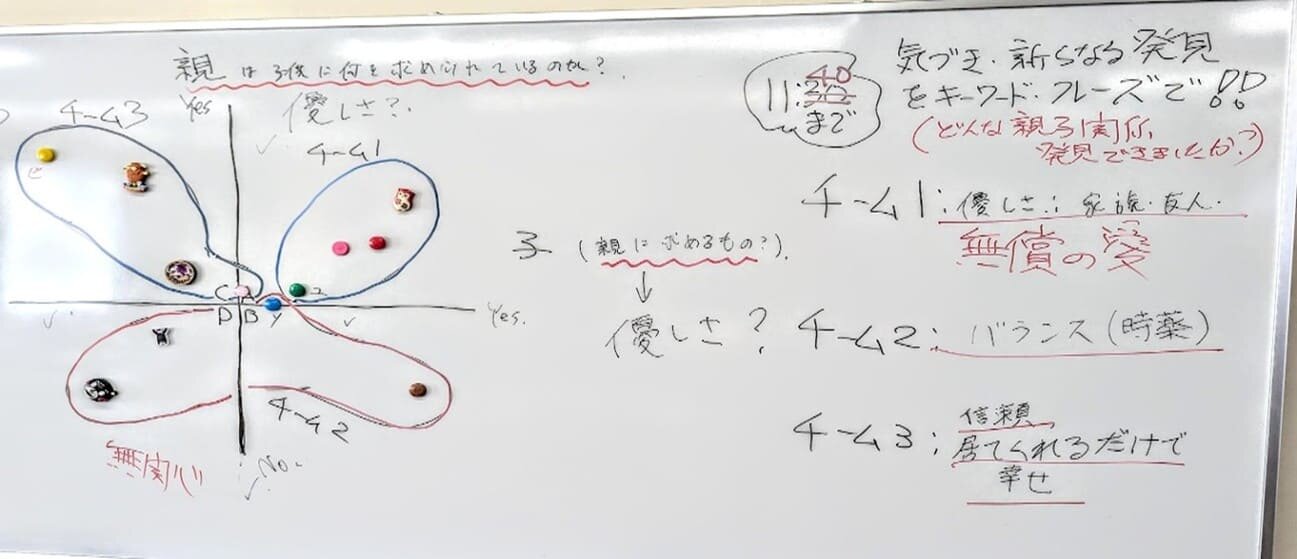
Co-creation Scenes on "Tradition" during the AOTS・JICA Training Program (February 5-9, 2024)

Co-creative Learning at Reitaku Open College (February 15, 2024)
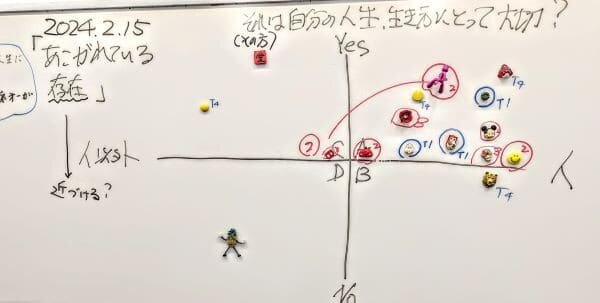
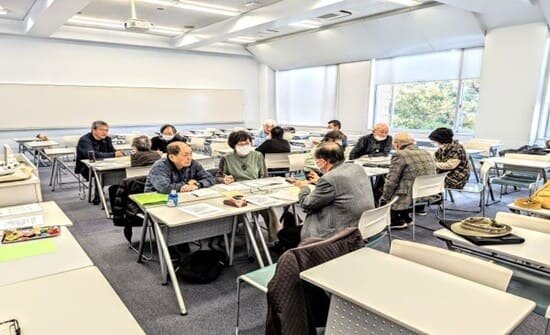
(For your reference)
What is the "Co-creative space"?
"Co-creative space" is a space of creating together Kata (various ways of thinking and feeling) at free-will. It is a space for having a sense of living together by renewing and revitalizing my own reasoning and emotion. This method is called the Co-creative Space Development (CSD) method.
This is an innovative & Kaizen method by working together with a different mind-set, which triggers inspiration, creating shared value and synergy effects on both individuals and groups or organizations. Specifically,①it generates questions (judgment-axis) to be shared among different mind-sets and exploring diversified answers(new findings).②It leads to discovering "problems" in a visible fashion, and analyzing their causes and finding solutions (Action Plan). Figure 1 demonstrates this method.
Experiencing CSD will acquire Core life skills and discover the gateway to the eternal love.
(mind-set:a mental attitude or inclination, a fixed state of mind. https://www.merriam-webster.com/dictionary/mindset)
CSD: Innovative method of renewing my own reasoning and emotion
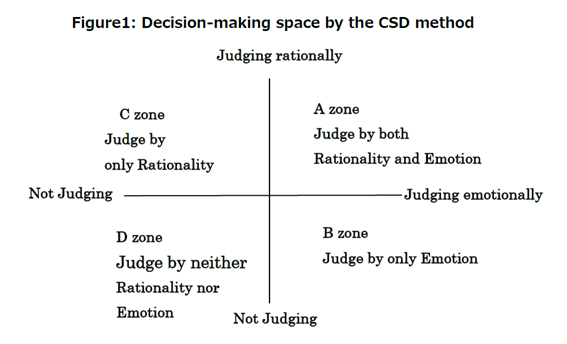
Note: Rationality includes not only logic(merit/demerit), but also moral judgement(good/bad). Emotion includes love/hate, intuition etc.
Obligatorily judgement and legal judgement are carried out in D zone.
CSD: Kaizen method of mind-set<assumption>at free-will
This CSD method is not only to visualize objectively (to share) my way of thinking and feeling toward the topic or theme(object recognition, but also to show the meaning for being aware of my own blindspots by sheding light on own set of values and fixed idea. This is illustrated in Figure 2.
My way of value judgment whatsoever will lead the ultimate question of "Who really am I?". The answer to this question is given in the Co-creative space of "Learning from others or not" (horizontal axis) and "Testing my way or not" (vertical axis). This reveals real Me as a sinner shown as Arrogant(A), Blind(B), Closed(C), Deaf(D). Despite all these, real Me is loved and blessed as shown in Figure 2 and the living word of Bible below.
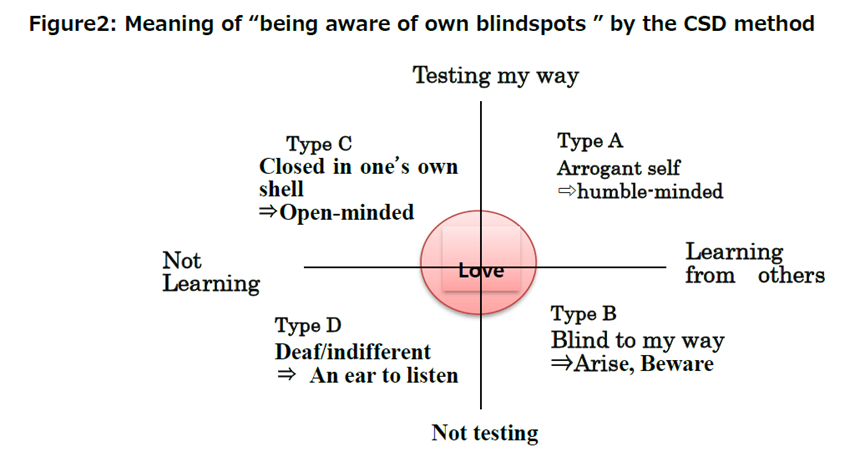
The Co-creative Space is: "One for All, All for One", "Uplifting motivation and commitment", "Facing ME", "Gateway to the Truth(=L: everlasting Love)".
This is love: not that we loved God, but that he loved us and sent his Son(Jesus) as an atoning sacrifice for our sins. (1 John 4-10 NIV)
Hiroyuki Oba, Professor Emeritus, Reitaku University, Japan + Co-creative team









